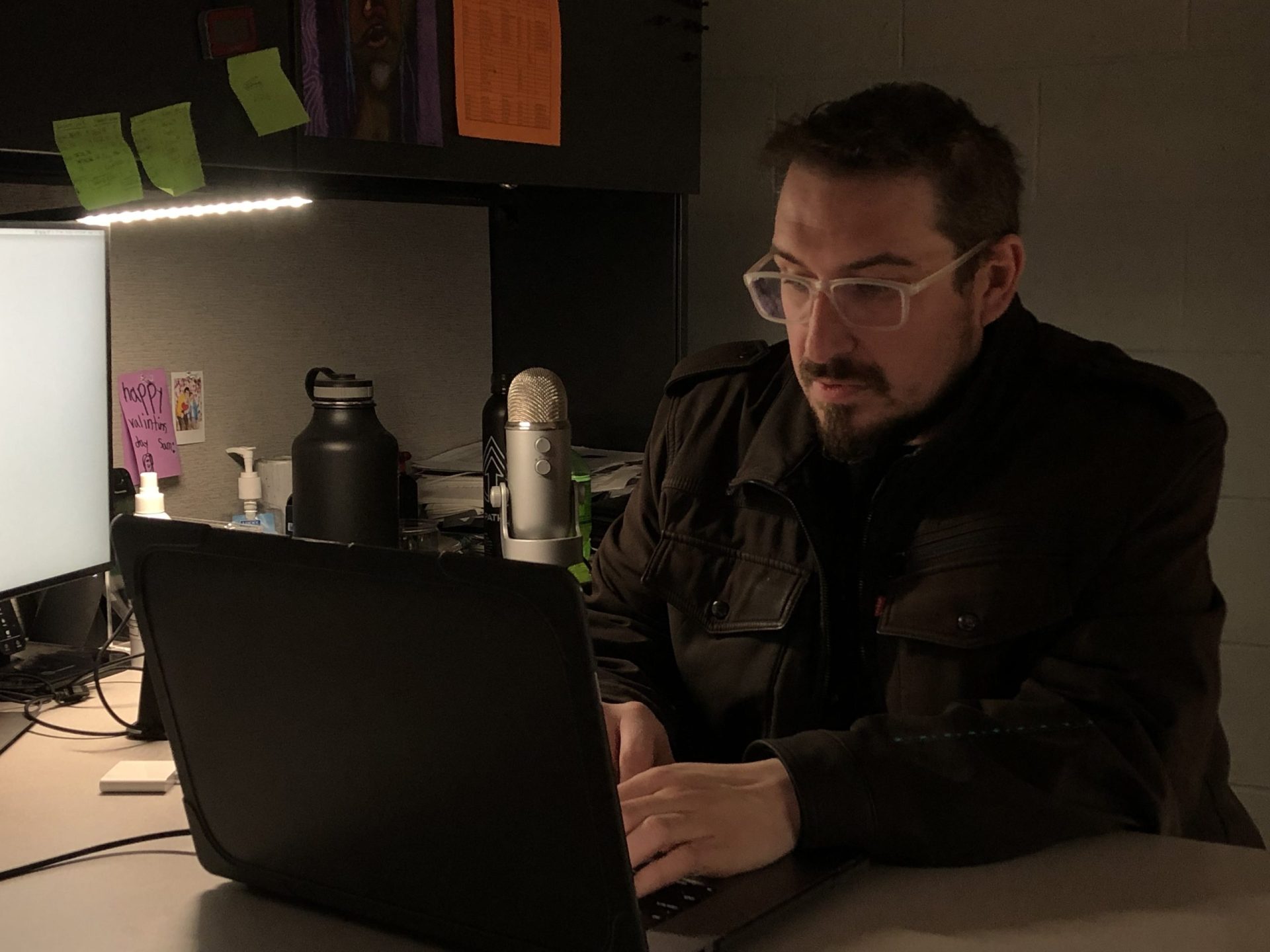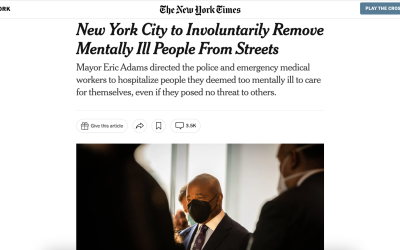In this final part of my interview with Sam Rapien, we discuss the future of modern academia and what the future holds for Sam.
Especially with students, going back to self-care, they might be struggling or might have questions, but they’re afraid to go talk to the professor. I think more often than not, they’re [professors] willing to work with students, they just don’t know, or they don’t realize how some of the policies are actually affecting the students.
Oh yeah. That was something that I always wanted to make sure of, that I never forgot what it was like to be a student. I think that happens a lot.
It’s this thing for me where, even the fact that we go into high schools and we say, “OK, now that you’re graduating high school, you have to go to college. Now everyone pack up. You’re going to college” and we’re taking these 18-year-olds who are getting their first taste of freedom and also dealing with bigger life stuff than they’ve ever dealt with before, and that feeling of isolation from being away from home and friends and family and having to create this new peer group. All of this culminating while we’re also saying, “now figure out what you want to do with the rest of your life. And as you do it, you’re racking up all this debt”.
Then I see a faculty member having the audacity of scoffing at the idea that maybe our students have mental health issues. “Come on. Look at all of the stuff that they have to deal with in a world that’s kind of a dumpster fire.”
20-30 years ago, college might have guaranteed you a job. It’s not necessarily the case now. At the very least, we should be empathetic and try to help and accommodate and focus on what’s really important. Because to me, the attendance policy is not important. If I have a student who doesn’t show up to any of the classes but still produces quality work, that’s not on them, that’s on me. I’m not challenging or pushing hard enough or teaching enough.
There was even a conversation just last week at a meeting with a professor who said, “well, if they tell me that they’re going to do something and then they don’t do it, can I penalize their grade? For not following through on something”. What are you doing? What is this? We’re supposed to be teaching, the grades should just follow the proficiency of the work, not this punitive stuff.
It’s changed my policies quite a bit. I’m concerned that we haven’t really learned much from that reflection, and instead we’re going back to the way we’ve done stuff.
And I don’t know.
It doesn’t sit well?
Yeah, I just don’t see the value in it. I see much more value in being this collection of people, some who know some things and others that want to know the same things like that. To me, it’s just what we do.
Right. Speaking from personal experience, you did a very good job of moving into online learning.
Thank you, thank you.
Yeah, of course. Some professors really fought it [moving online] and were really against it and so I had to learn a lot on my own. Now that we’ve transitioned back into the classroom, sometimes, I have a class right now, where I’m sitting there thinking, “This is dumb. Why am I sitting in this classroom? I know all of this because I’ve learned it on my own already”.
Yeah. I don’t know, it’s always been a fun thought experiment for me, I’ve always wanted to get together a collection of like minded professors and students to do a thought experiment of completely rethinking what higher education is or what it should be. Because to me, if you can come into a class and say on day one, you can show me proficiency in all of the objectives that I had for you for that class, why should you have to take that class? It doesn’t make any sense. Then you’re just paying for the class because we told you it’s part of a sequence.
That’s not what learning is to me. I would much rather have you not take the class that you can already show me proficiency in, and instead take another class in something that is going to benefit you. You’re not just slogging through in order to get it done.
I don’t think it’s gonna happen anytime soon, but it’d be really great if there was a complete rethinking of what higher Ed is. More pathways, more ability to customize your education to determine what classes that you’re going to take rather than being told that you have to take this class that might not have any relevance to anything that you’re wanting to do.
I also feel like no one should be paying this kind of money to teach themselves. Sure, supplement what you’re being taught in the classroom, but anyone that takes a class and walks out of it saying, “I got nothing out of that”, woof. That’s really expensive.
I’ve been telling students that each class day is 26 bucks, right? So, every one of those classes, a class day is $26. Again, it’s a crass way to look at education. But again, it’s realistic.
Yeah, you have to.
You’re paying for it.
It’s a business and you’re very much a customer. Even though students are bleeding invisible money into some debt, it’s still going to be there waiting for you. Trying to get students to own that and to ask for more from their education because the way that the system’s been built for so long is, you pay for whatever we want to give you. That’s not how it should be.
I came in with a multimedia minor and then I switched it to a major, so I had taken a lot of the higher advancement classes and so when I switched to my major, I was backtracking to the beginner, intermediate classes. I think I made the registrar angry because my advisor worked to get around those classes because she’s able to show proficiency in like the beginner programs. I did have a bit more freedom than some of my peers who are in the same spot [grade] as me.
Right, yeah, that’s good. That to me, again, is the way it should be. If you can show those skills in that proficiency, then why should we make you take a class that’s going to just teach you the same things that you’ve already done?
I know it’s probably much easier said than done, but we need to stop looking at students as these groups that we just kind of move along. The way that I’ve seen it has been each individual is going to be at different levels and at different proficiencies. They have different goals and motivations. If they’re paying this kind of money for an education, then we should really be individualizing those experiences. But we don’t.
It really is the same kind of K-12 model, just applied to higher education and that to me where philosophically, I think it should be completely rethought. It should be remodeled and it should be a completely different experience.
That’s my soapbox.
The last two years have been incredibly strenuous for everyone, and it has made a lot of people rethink their choices or their paths. Was there ever a time when you thought, “is this worth it”?
Oh, wow, yes. I’m at a weird point in my life.
Here’s the challenge for me. Because I love teaching, I know it sounds hokey like I’m in some kind of movie, but I legitimately love teaching. It was a surprise. I mean, I always really loved art and design, but I then fell into teaching and I found that I love that just as much as my other passions.
Where I’m at right now, this is a really tough spot, because I love teaching, but I despise the system. I really don’t like being a cog in a wheel that I don’t believe in. I’m not saying that I don’t believe in higher education. I just feel what it is right now, isn’t what it should be.
I think a lot of times, I get very angsty about what I think it should be, and what it is, and not being able to change it. But then there’s also no alternative. I could teach at a private institution, but that’s even worse, they’re even more money centric. I don’t know what else. But that’s where I’m at.
I really love, I really love teaching and obviously the institution provides me the opportunity to do that. But being a part of everything else within it, I really struggle with and there’s been plenty of times, I mean the last couple of years for sure, but I would even say maybe a little bit before that, where I’ve seriously thought, “maybe I’d need to leave academia”. It has nothing to do with the students and has nothing to do with teaching. It’s all of these other expectations and things that have nothing to do with teaching and I was just talking about it today, how I’ve never been in a meeting where anyone has said, “hey, we’re going to take this off your plate for you so you can focus on teaching”. Like I said, it’s always been “here’s something else you need to do. Here’s some more stuff you need to do”. Where it continually pulls me away from the thing that I actually love doing, then it begins to feel more and more like a job.
I had always made a pact with myself that if I ever get to a point where teaching just isn’t fun anymore, then I need to find something else to do because I never wanted to be that professor who is just collecting a paycheck and then making all of their students’ lives miserable.
To answer your question, yeah, and it’s kind of a continual struggle because it really sucks to find something that you really, really love doing, but then the system that exists within just kind of sucks the life out of you.
I really fell in love with teaching, and it’s been the center and focus of my life for the last 16 years. I’ve just kind of hit this weird point now where I love being in the classroom, but everything else around it is just, you know.
You have to weigh the pros and cons.
Yeah, exactly. I think a lot of that came from COVID to a degree where it then became that reflection where it was like looking at where I’m at in life and looking at the bigger picture of some of these things and asking, “Do you really want to continue on this way or is there maybe a point where you diverge from that and find something else to do?” I’m still figuring that out.
This interview has been edited for length and clarity.




0 Comments